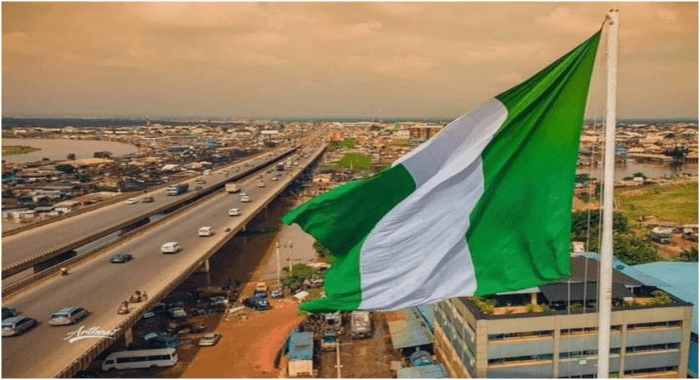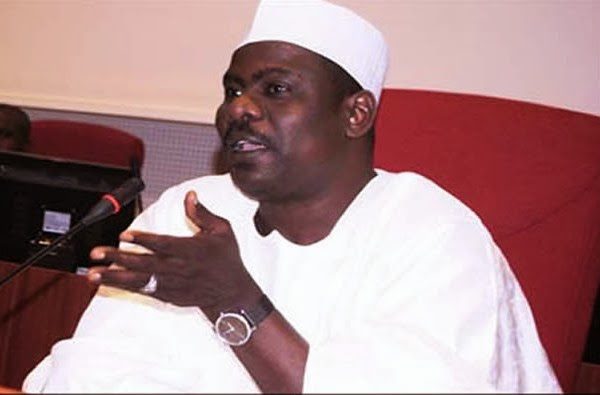National Issues
The Nexus Between Law And Politics In Nigeria -By Garba Adamu Gwangwangwan
The law plays a crucial role in addressing these challenges and ensuring stability in Nigeria. The legal system in Nigeria is based on English common law, customary law, and Islamic law (in the northern states). The judiciary is independent and has the power to interpret and enforce the law.

Nigeria operates a federal system of government with three branches – the executive, the legislature, and the judiciary. The Constitution of the Federal Republic of Nigeria is the supreme law of the land, and all other laws are subject to it.
The Nigerian legal system is designed to ensure that no one is above the law, and that the rule of law is upheld at all times. However, in practice, Nigerian politics can sometimes override the law, particularly in cases where powerful individuals or interests are involved.
There have been instances where politicians or government officials have been accused of corruption, abuse of power, and other offenses, but have gone unpunished due to their influence and connections within the political system. In some cases, the judiciary has been compromised or undermined, leading to a lack of accountability for those in power.
Furthermore, political violence and electoral malpractice are not uncommon in Nigeria, which can also lead to a disregard for the rule of law. In such cases, the political interests of individuals or groups can override legal considerations, leading to a situation where the law is not effectively enforced.
Overall, while Nigeria has a robust legal framework in place, there are instances where politics can override the law, leading to a lack of accountability and a disregard for the rule of law.
The relationship between law and politics in Nigeria is complex and intertwined. Nigeria is a country with a federal system of government, where power is shared between the federal government and the 36 states that make up the country. The Constitution of Nigeria is the supreme law of the land and provides for the separation of powers among the executive, legislative, and judicial arms of government.
Politics in Nigeria has been shaped by a history of military rule, ethnic and religious divisions, corruption, and economic challenges. The country has experienced numerous political crises, including coups, ethnic and religious conflicts, and election-related violence.
The law plays a crucial role in addressing these challenges and ensuring stability in Nigeria. The legal system in Nigeria is based on English common law, customary law, and Islamic law (in the northern states). The judiciary is independent and has the power to interpret and enforce the law.
However, the effectiveness of the legal system in Nigeria has been hampered by corruption, inefficiency, and a lack of resources. Political interference in the judiciary has also been a challenge, with some politicians accused of using their influence to influence the outcome of court cases.
In recent years, there have been efforts to strengthen the rule of law in Nigeria. The government has implemented judicial reforms aimed at improving the efficiency and effectiveness of the legal system. There have also been initiatives to combat corruption and improve transparency in the political process.
The nexus between law and politics in Nigeria is complex and constantly evolving. The law plays a crucial role in ensuring stability and addressing the challenges facing the country. However, the effectiveness of the legal system in Nigeria is hampered by corruption, inefficiency, and a lack of resources. Efforts to strengthen the rule of law and combat corruption are ongoing and will be crucial to Nigeria’s future.
There have been several cases in Nigeria where the law has overridden politics. Here are a few examples:
The removal of former Chief Justice Walter Onnoghen: In 2019, former Chief Justice Walter Onnoghen was removed from his position by President Muhammadu Buhari. The move was seen as politically motivated, as Onnoghen was considered to be an obstacle to the president’s re-election bid. However, the Nigerian Bar Association and other legal bodies challenged the removal, arguing that it violated the constitution. Eventually, the courts ruled that the president did not have the power to remove the chief justice without due process, and Onnoghen was reinstated.
The 2015 presidential election: In 2015, Nigeria held a presidential election that was widely seen as a test of the country’s democratic institutions. The incumbent president, Goodluck Jonathan, was widely expected to win, but the opposition candidate, Muhammadu Buhari, emerged victorious. Despite initial concerns about violence and electoral malpractice, the election was widely praised as free and fair, and the outcome was accepted by both sides. The success of the election was seen as a victory for the rule of law over political maneuvering.
The June 12 election: In 1993, Nigeria held a presidential election that was widely considered to be free and fair. The winner, Moshood Abiola, was a popular businessman and philanthropist who was expected to usher in a new era of democracy and prosperity. However, the military government at the time annulled the election, citing irregularities. This led to protests and a protracted legal battle, with Abiola and his supporters arguing that the election was valid. Despite the political turmoil that followed, the case demonstrated the importance of the rule of law and the independence of the judiciary in upholding democratic principles.
Garba Adamu Gwangwangwan, writes from Bauchi, adamugarba0079@gmail.com




















